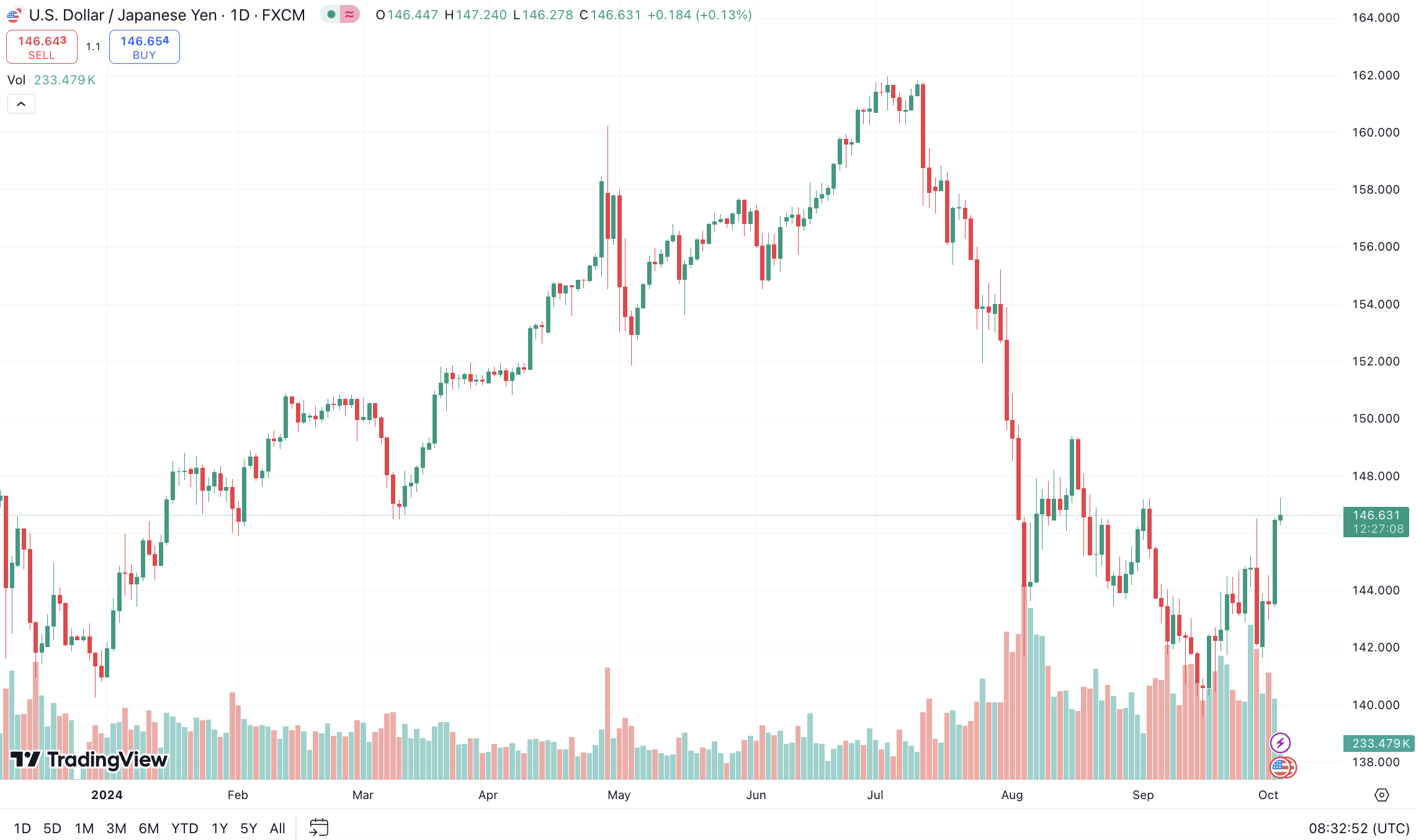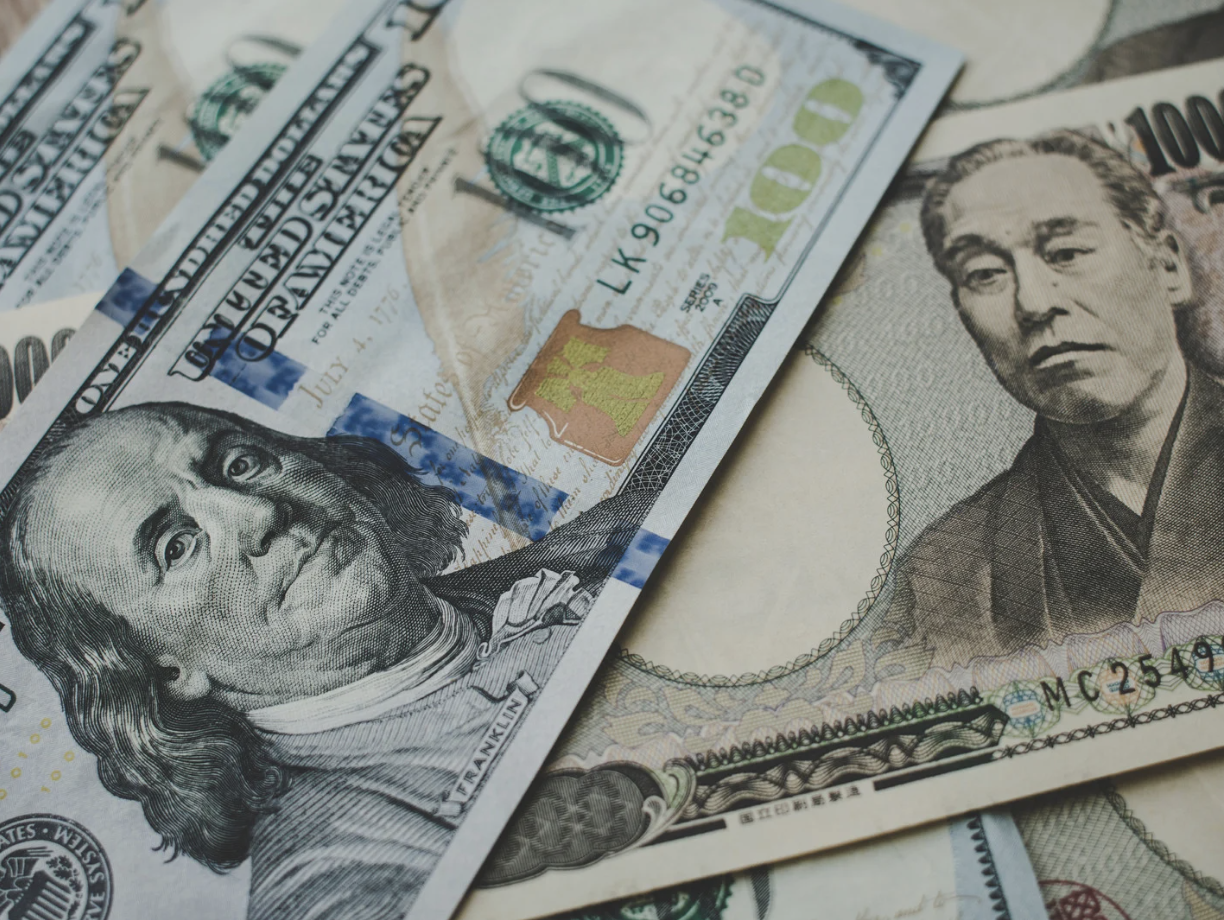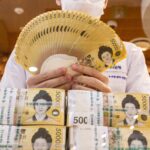Despite Japanese Prime Minister Shigeru Ishiba’s recent dovish remarks, market analysts continue to hold their expectations for a Bank of Japan (BOJ) rate hike in the longer term. The yen slid sharply, reaching 147.15 against the U.S. dollar, after Ishiba stated that the current economic climate did not necessitate further rate increases. This marked the yen’s steepest single-day decline since June 2022.
Market Reaction and Policy Outlook
Ishiba’s comments came after a meeting with BOJ Governor Kazuo Ueda, signaling a softer stance compared to his previous tone on the campaign trail. Despite this shift, analysts remain confident in the BOJ’s commitment to its tightening cycle. “My money is still on a rate hike in October,” said Stefan Angrick, a senior economist at Moody’s Analytics, who cited the optimistic tone of BOJ’s September meeting minutes.
As of Thursday, futures markets indicated less than a 50% probability of a BOJ rate hike by year-end. Nevertheless, some experts foresee a possible rate hike in early 2025 if not sooner.
BOJ’s Cautious Approach
BOJ board member Asahi Noguchi reiterated the need for continued accommodative monetary policy to shift public expectations about future price increases. The central bank’s benchmark interest rate, currently at 0.25%, has been steady since its July hike—the first in 17 years.
With the next BOJ meeting scheduled for October 30-31, where updated growth and inflation forecasts will be released, markets are closely watching whether the central bank will stick to its gradual hiking path. Some strategists, such as Ken Matsumoto of Crédit Agricole CIB, anticipate a potential hike in early 2024, especially given the uncertainty surrounding Japan’s upcoming general election.
Global Implications and Currency Impact

The yen’s recent volatility is largely tied to the BOJ’s rate trajectory and global market dynamics. As the BOJ raised rates in July, it triggered an unwinding of the popular yen carry trade, which had previously supported global markets. Higher rates in Japan could strengthen the yen, potentially hurting export-heavy Japanese stocks by making their goods less competitive abroad.
Mazen Issa of MRB Partners suggests further yen weakness will likely be limited, but any future BOJ actions will depend heavily on U.S. economic stability and global conditions.
A December Hike Still in Play?
Nomura’s Yujiro Goto and Mizuho’s Kazuo Momma emphasize that the BOJ’s rate decisions will hinge on developments in the yen’s exchange rate and the U.S. economy. While a December rate hike is still possible, analysts suggest that the timing of the next hike—whether this year or in early 2025—will be influenced by global economic conditions and domestic pressures.





